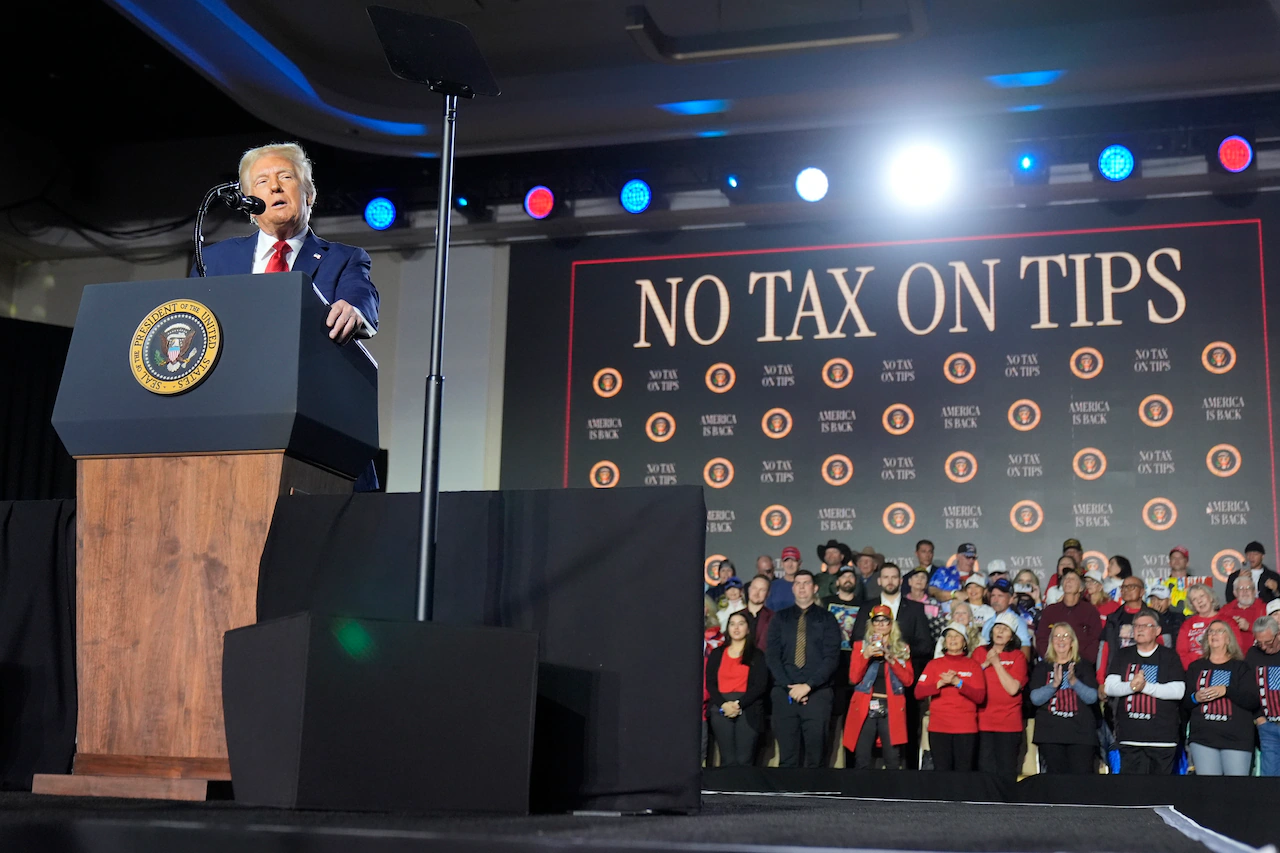
Millions of Americans working dozens of different jobs may soon be able to keep more of their hard-earned cash thanks to President Donald Trump’s “Big Beautiful Bill.”
The legislation included the creation of an above-the-line deduction for tips earned in traditionally tipped occupations, meaning those workers can now deduct tips from their taxable income, exempting those earnings from federal income taxes.
Workers can deduct up to $25,000 per year in qualified tips, which includes cash tips, tips paid by card and tips earned through tip-sharing arrangements.
The legislation defines qualified tips as “tips received by an individual in an occupation which customarily and regularly received tips.”
The U.S. Department of the Treasury recently released a preliminary list of 68 jobs that may qualify for the deduction, with an official proposed list expected to be published in the Federal Register for public comment in the near future.
Here’s a look at the preliminary list.
Beverage and food service
Bartenders
Wait staff
Food servers, non-restaurant
Dining room and cafeteria attendants and bartender helpers
Chefs and cooks
Food preparation workers
Fast food and counter workers
Dishwashers
Host staff, restaurant, lounge and coffee shop
Bakers
Entertainment and events
Gambling dealers
Gambling change persons and booth cashiers
Gambling cage workers
Gambling and sports book writers and runners
Dancers
Musicians and singers
Disc jockeys, except radio
Entertainers and performers
Digital content creators
Ushers, lobby attendants and ticket takers
Locker room, coatroom, and dressing room attendants
Hospitality and guest services
Baggage porters and bellhops
Concierges
Hotel, motel and resort desk clerks
Maids and housekeeping cleaners
Home services
Home maintenance and repair workers
Home landscaping and groundskeeping workers
Home electricians
Home plumbers
Home heating and air conditioning mechanics and installers
Home appliance installers and repairers
Home cleaning service workers
Locksmiths
Roadside assistance workers
Personal services
Personal care and service workers
Private event planners
Private event and portrait photographers
Private event videographers
Event officiants
Pet caretakers
Tutors
Nannies and babysitters
Personal appearance and wellness
Skincare specialists
Massage therapists
Barbers, hairdressers, hairstylists and cosmetologists
Shampooers
Manicurists and pedicurists
Eyebrow threading and waxing technicians
Makeup artists
Exercise trainers and group fitness instructors
Tattoo artists and piercers
Tailors
Shoe and leather workers and repairers
Recreation and instruction
Golf caddies
Self-enrichment teachers
Recreational and tour pilots
Tour guides and escorts
Travel guides
Sports and recreation instructors
Transportation and delivery
Parking and valet attendants
Taxi, rideshare drivers and chauffeurs
Shuttle drivers
Goods delivery people
Personal vehicle and equipment cleaners
Private and charter bus drivers
Water taxi operators and charter boat workers
Rickshaw, pedicab and carriage drivers
Home movers
More on the deduction
The deduction begins to phase out for single-filers earning more than $150,000 and joint-filers earning more than $300,000, with the deduction decreasing by $100 for each additional $1,000 in earnings beyond the aforementioned thresholds.
While workers won’t have to pay federal income tax on qualified tips, the tips will still be subject to the federal payroll tax, as well as state and local income and payroll taxes.
The Yale Budget Lab estimates that there were four million regularly tipped workers across the country in 2023, representing about 2.5% of all workers.
The Tax Policy Center said that roughly 60% of households with tipped workers will see a tax cut under the new legislation, with an average savings of about $1,800 per year.
The new deduction is temporary and will expire after 2028 barring any future legislation to extend it.



